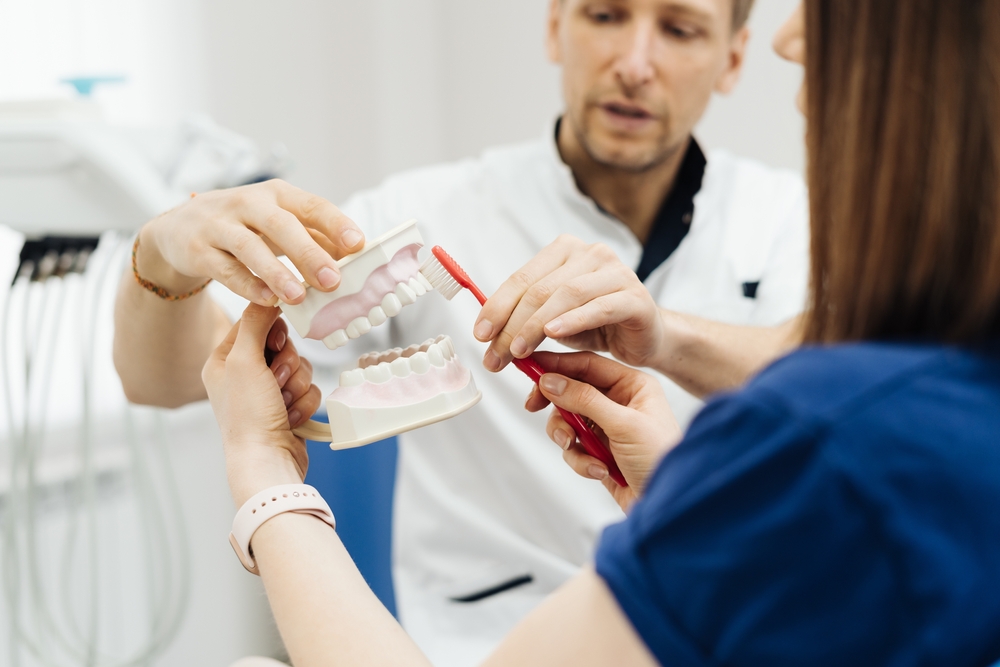How can we get our oral health advice to stick?
Featured Products Promotional FeaturesPosted by: Dental Design 27th October 2022

As dental professionals we strive to ensure that our patients are maintaining good standards of oral health. It’s always a bit of a shock, then, when a study reveals that despite all of our efforts, a significant portion of the UK population are still failing to maintain good oral hygiene routines.
In fact, a recent study suggests that 4 in 10 young adults in the UK brush their teeth just once a week![i] This data, gathered by a dental accounting service, also revealed that 44% of UK adults have never used mouthwash and, worryingly, that 1 in 4 people regularly share their toothbrush with another person.
Of course, we should always be wary of studies like this, as they often paint a sensationalist picture rather than the truth. While these figures are initially shocking, we have to remember that the sample size and location of this survey is likely to have had a big impact. Plus, some of the claims are nebulous at best, while other parts of the survey data are actually rather positive – it just goes to show that figures aren’t always to be trusted at first glance.
What we can take from this survey, however, is a better understanding about why some of these facts and figures have been recorded. In the findings, it states that the main reason these individuals brush their teeth so rarely is simply because they forget.[ii] So, with that in mind – do we as professionals need to encourage better oral health habit formation?
 Forming a habit is no easy task. In fact, research estimates that it can take anywhere between 18 to 254 days to form a habit, with 66 days usually being the sweet spot where the new behaviour becomes automatic.[iii] This means that to change the behaviour of these individuals, there needs to be a real source of motivation to begin with.
Forming a habit is no easy task. In fact, research estimates that it can take anywhere between 18 to 254 days to form a habit, with 66 days usually being the sweet spot where the new behaviour becomes automatic.[iii] This means that to change the behaviour of these individuals, there needs to be a real source of motivation to begin with.
This is, of course, impossible for us to oversee in the current format that dentistry works. An appointment every six months or once a year isn’t enough for us to encourage better habit formation single-handedly, but what we can do is really emphasise the importance of good oral health and take an individualised approach to each patient to better understand why they aren’t brushing.
Think of it this way – how many times have you given a patient the same advice, only for them to return for their next appointment with no changes having been made? In these situations, we need to think outside the box and discuss circumstances more deeply. This way, we can begin to unravel why certain patients aren’t looking after their teeth and adjust our advice accordingly.
At the end of the day, we are just part of the solution. We can only help the patients that do visit us. To truly make a difference I think there needs to be a concerted effort by professionals and government across the UK to better spread information, provide assistance and really ensure that everyone knows the importance of oral hygiene. Oral health is improving in the UK year after year, so as long as we remain dedicated to making a difference, we will get there in the end.

For further information please call EndoCare on 020 7224 0999
Or visit www.endocare.co.uk
EndoCare, led by Dr Michael Sultan, is one of the UK’s most trusted Specialist Endodontist practices. Through the use of the latest technologies and techniques, the highly-trained team can offer exceptional standards of care – always putting the patient first. What’s more, EndoCare is a dependable referral centre, to which dentists from across the country send their patients for the best in specialist endodontic treatment.
[i] Study Finds. Stereotype or reality? 4 in 10 British adults brush their teeth just once a week! Link: https://www.studyfinds.org/british-adults-brush-their-teeth/ [Last accessed July 22].
[ii] Study Finds. Stereotype or reality? 4 in 10 British adults brush their teeth just once a week! Link: https://www.studyfinds.org/british-adults-brush-their-teeth/ [Last accessed July 22].
[iii] Healthline. How Long Does It Take for a New Behavior to Become Automatic? Link: https://www.healthline.com/health/how-long-does-it-take-to-form-a-habit#it-varies [Last accessed July 22].








